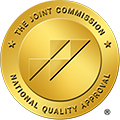At Georgia Sky Outpatient Detox, we offer comprehensive and compassionate detox solutions, empowering individuals to reclaim their well-being and embrace a healthier future. Our tailored programs are designed to meet your unique needs, providing the support and care essential for a successful recovery journey. Let us help you take the first step toward a brighter tomorrow.
Substance use disorder is prevalent in many parts of the United States, including Atlanta, where meth abuse has risen significantly over recent years. Understanding the underlying causes of methamphetamine addiction, including environmental factors, genetic predisposition, and social influences, is crucial for effective treatment and recovery. Factors such as childhood trauma, peer pressure, and socio-economic challenges can increase the risk of developing an addiction, making it essential for communities to address these root causes through education and support systems.


The Impact of Meth on the Body and Mind
On a psychological level, meth addiction dramatically alters brain chemistry. Repeated use can lead to changes in brain structure and function, impairing judgment, memory, and emotional regulation. Those addicted to meth often experience anxiety, paranoia, hallucinations, and violent behaviors, complicating the recovery process. The psychological toll of addiction can create a cycle of despair, where individuals may resort to further substance use as a means of coping with their mental health struggles. This interplay between addiction and mental health underscores the importance of integrated treatment approaches that address both aspects simultaneously.
Recognizing Signs of Meth Addiction
- Increased energy and wakefulness, often leading to insomnia.
- Rapid weight loss due to decreased appetite.
- Frequent changes in mood or behavior, including irritability and aggression.
- Neglecting responsibilities at work or home.
- Borrowing or stealing money to fund the addiction.
Recognizing these signs not only helps in assessing one’s relationship with meth but also encourages seeking professional help sooner rather than later. Friends and family members play a crucial role in this process, as their observations and interventions can lead to timely treatment. It is essential to approach the situation with empathy and understanding, as individuals struggling with addiction often feel isolated and ashamed. By fostering open communication and providing support, loved ones can help create a pathway toward recovery and healing.

The Importance of Detox in Meth Recovery
What Happens During Meth Detox?
During meth detox, the body undergoes a chemical adjustment as it begins to function without the drug. Symptoms of withdrawal can vary in severity and may include:
- Fatigue and extreme exhaustion.
- Severe cravings for meth.
- Depression and anxiety, often leading to suicidal thoughts.
- Insomnia or hypersomnia.
- Physical symptoms such as headaches and muscle pain.
The detox process can last anywhere from a few days to several weeks, depending on the individual’s usage history and overall health. Medical supervision during detox is often recommended to manage withdrawal symptoms and provide support throughout the process. This period can be particularly challenging, as the individual may experience intense emotional fluctuations and physical discomfort. It is crucial for loved ones to understand that these symptoms are a natural part of the recovery journey and that their support can make a significant difference.
Why Professional Detox is Crucial for Meth Addiction
Professional detox is critical to safely manage the withdrawal symptoms associated with meth addiction. Without medical supervision, individuals may be at risk of relapsing, which can further complicate their recovery journey. Detox facilities provide a structured environment where individuals can receive medications to alleviate withdrawal symptoms, counseling, and support from healthcare professionals trained in addiction treatment.
Furthermore, a medically supervised detox program enhances the chances of a successful transition into a comprehensive treatment program. It serves as a foundation for ongoing recovery efforts, enabling individuals to address the psychological, emotional, and social aspects of addiction. During this time, patients can also engage in therapeutic activities designed to promote healing and self-discovery, such as group therapy sessions, art therapy, or mindfulness practices. These activities not only help to distract from cravings but also foster a sense of community and understanding among individuals who share similar struggles, ultimately reinforcing their commitment to sobriety.
Treatment Options for Meth Addiction in Atlanta
Inpatient vs. Outpatient Treatment
One of the primary decisions individuals will face after detox is whether to pursue inpatient or outpatient treatment. Inpatient treatment programs offer a highly structured environment where individuals reside at the treatment facility for a set period. This option is typically recommended for those with severe addictions or co-occurring mental health disorders. The immersive nature of inpatient care allows for 24/7 support from trained professionals, which can be crucial during the early stages of recovery when individuals are most vulnerable to relapse.
In contrast, outpatient treatment allows individuals to live at home while attending therapy and counseling sessions. This option may be more suitable for those with a supportive home environment and a strong desire to continue working or attending school during their recovery process. Outpatient programs often provide flexibility, enabling participants to balance their recovery with daily responsibilities. Each option has its pros and cons, and it’s crucial to evaluate personal circumstances and preferences when selecting a treatment path. Additionally, many facilities in Atlanta offer a combination of both inpatient and outpatient services, allowing for a gradual transition as individuals progress in their recovery journey.


Local Resources for Meth Addiction Recovery
Support Groups and Community Programs
Support groups are vital components of recovery, as they provide a sense of community and shared experience. Organizations such as Narcotics Anonymous (NA) offer meetings where individuals can connect with others who understand the challenges of addiction. These programs foster open communication and emotional support. Many participants find that sharing their stories not only helps them process their own experiences but also inspires others to stay committed to their recovery journey. The bonds formed in these groups can lead to lasting friendships, creating a network of support that extends beyond the meetings themselves.
Community programs in Atlanta also provide valuable resources, such as access to educational workshops, vocational training, and peer support initiatives. Engaging with these resources can help individuals build a healthy foundation for lasting recovery. Workshops often cover essential life skills, such as budgeting, job interviewing, and stress management, equipping participants with tools to navigate everyday challenges. Additionally, many community organizations host events that encourage social interaction and skill-building, further enhancing the recovery experience while reducing feelings of isolation.
Life After Meth: Maintaining Sobriety
Individuals recovering from meth addiction can greatly benefit from developing coping strategies to handle cravings and triggers. Some effective strategies include:
- Engaging in regular physical activity, which can reduce stress and improve mood.
- Practicing mindfulness and meditation techniques to enhance emotional regulation.
- Establishing a structured daily routine to instill a sense of normalcy.
- Avoiding environments or people associated with past use to minimize triggers.
Additionally, counseling and therapies, such as cognitive-behavioral therapy (CBT), can aid individuals in identifying and reframing negative thought patterns associated with cravings.
A strong support network is invaluable in maintaining sobriety after recovery. Individuals are encouraged to surround themselves with positive influences, such as family members, friends, and peers who are committed to their sobriety. Participation in regular support group meetings can also reinforce this network.
Finding a mentor or sponsor within recovery communities can provide additional accountability and guidance. Creating a positive environment focused on sobriety can bolster an individual’s chances of avoiding relapse and achieving lasting recovery.





